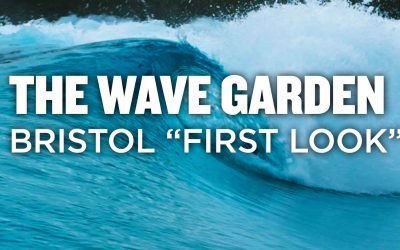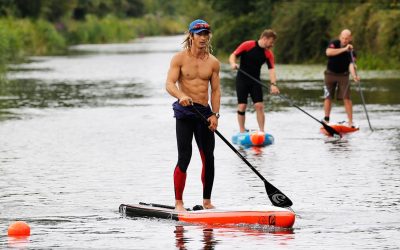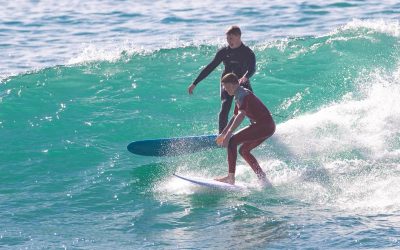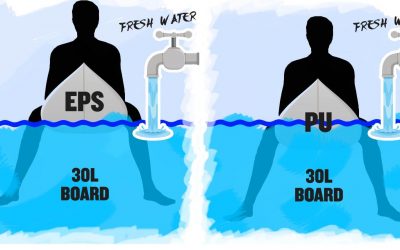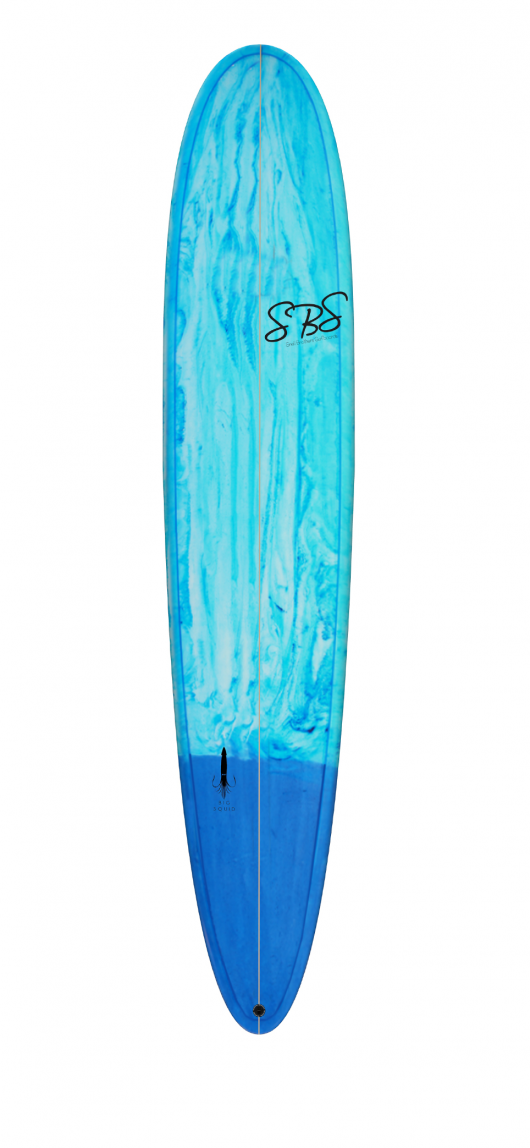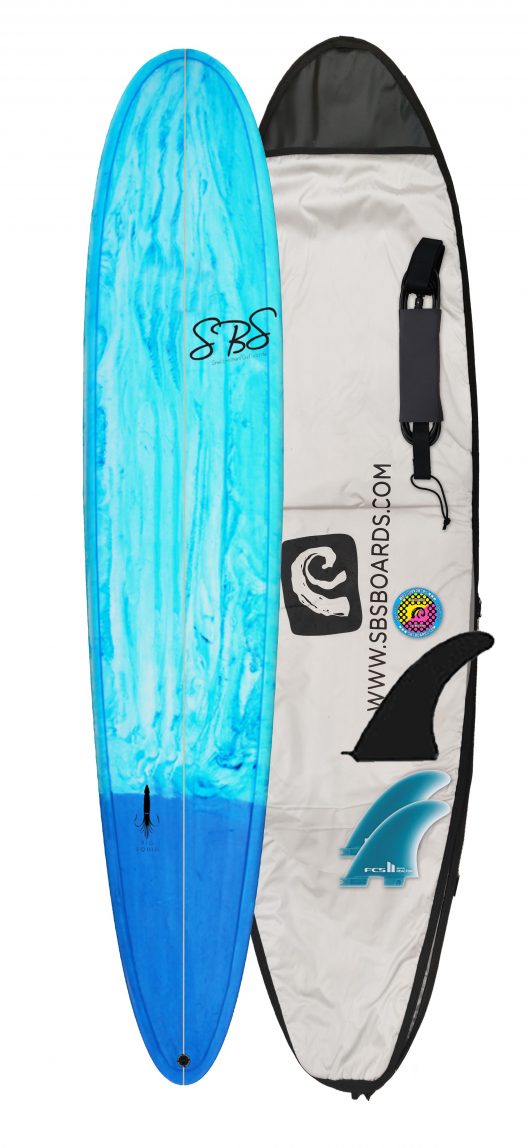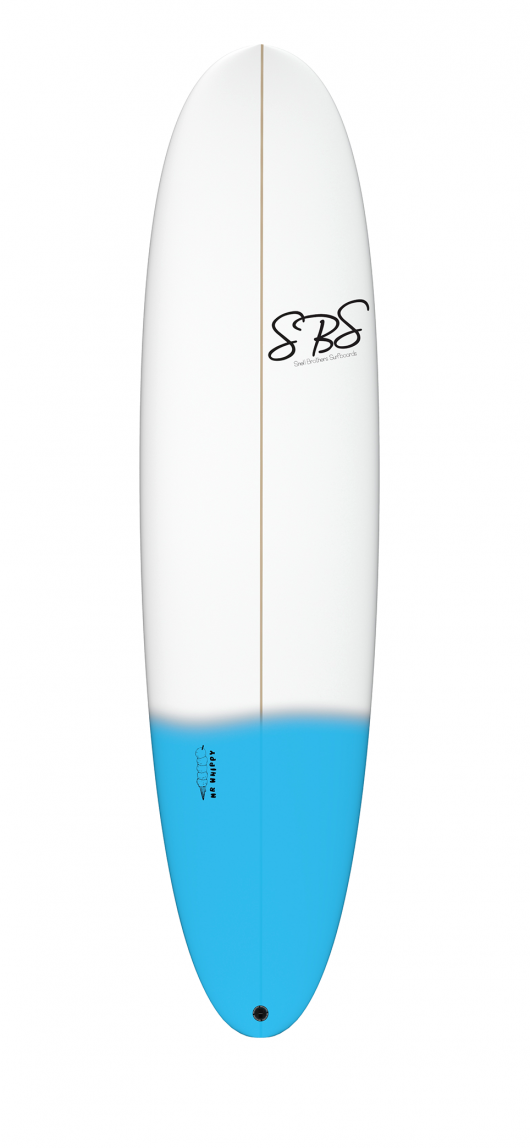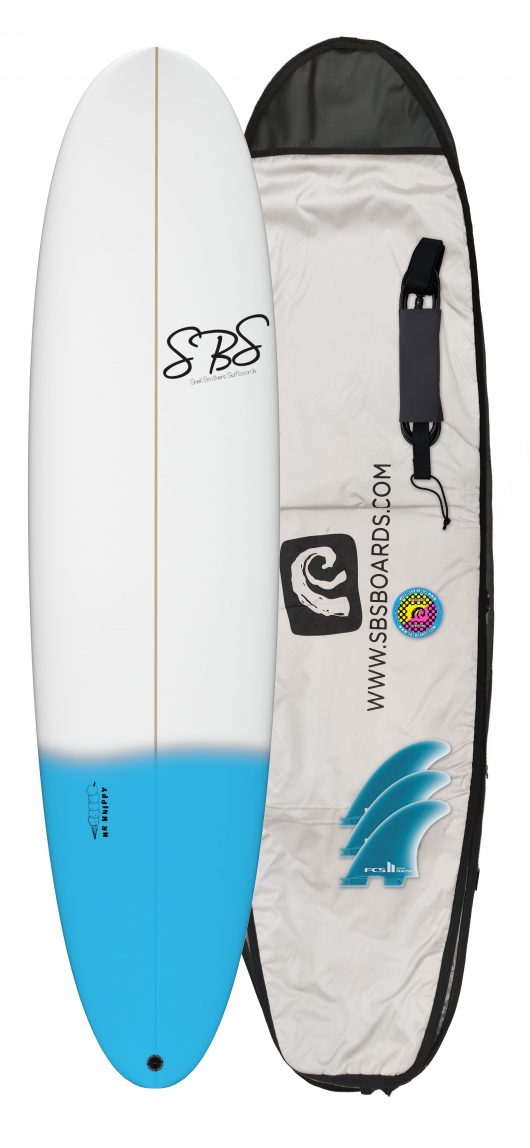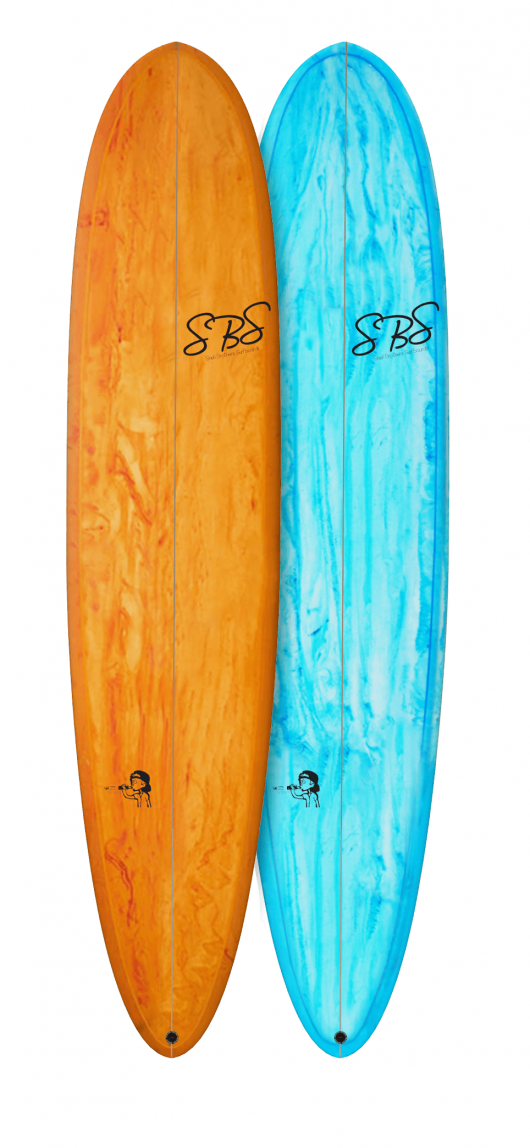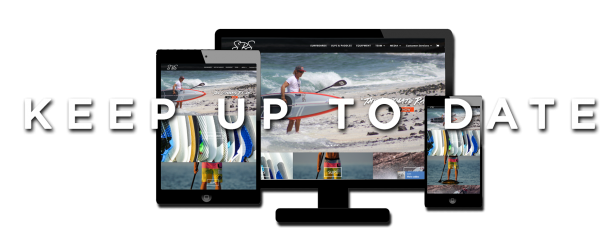Surfing Ultimate Myths
Surfing’s Top 10 Ultimate Myths
The world of surfing has many myths and legends, it is rife with superstition, so how can you separate the myths, from the facts?Whether you’re just getting into surfing, or you’re a seasoned pro, you might have heard some of these myths.
People that don’t surf have stereotypical opinions of surfers, full of misconception, based on ‘The Beach Boys’ music, or Hollywood movies like ‘Pointbreak’ and ‘Blue Crush’; that we all have blonde hair and shout ‘calabunga!’ every day. Aside from a small minority, it couldn’t be further from the truth.
If you surf at your local break there is probably an abundance of people, talking about the legends of that surf spot and general surfing myths. Anything from saying “you’re going in”, when you’ve finished your surf, riding a yellow board, to wearing green boardies in Bali could bring bad luck and no waves.
We are going to take you through our Top 10 Ultimate Surfing Myths, separating the honest truth, from the outrageous fantasy once and for all!
Here are our Top 10 Surfing Myths…
MYTH 1. SURFING IS EASY.
If you think surfing is easy, you are wrong.
Even a pro surfer knows it’s not just the ability to surf that is hard, it’s the fitness, the experience and the knowledge of the ocean, that has to be built up over years of practice to make it look so effortless. As the old saying goes ‘If something looks easy, it’s probably hard’ and the best in the world definitely make it look easy, but what they do is incredibly hard.
MYTH 2. YOU CAN ONLY SURF IN THE SUMMER IN THE UK.
If you’re not a surfer, you may think that surfing is strictly a summer activity…but if you surf in the UK, you know that is not the case!
The number of people I meet that say “Ooo you surf, what do you do in the winter?”, or “You can only do that in the summer.”. You can imagine their face when you say the best time to surf is the winter, it almost makes me laugh every time.
In the UK the water of certainly does get a lot busier in summer but mostly with tourists and retired locals enjoying some rare sunshine. You may have tried surfing for the first time in the summer, with ideas of catching waves in board shorts under the hot sun. Surfing doesn’t often conjure up the idea of 5mm wetsuits, gloves, booties and hoods, venturing out into freezing cold weather, and freezing water to catch a few mushy waves.
Surfers who wish to surf in the UK have to invest in a half decent wetsuit; gloves boots and a hood are optional but definitely recommended to surf year-round in the UK.
If not there is always the winter surf trip to find warmer climates like, southern Europe, Bali and Morocco.
MYTH 3. SURFERS ARE LAZY / DON’T HAVE JOBS.
Depending on who you speak to, they might confirm this! But surfing in its earliest conception, was a counter-culture lifestyle, rebelling against the traditional norms and expectations of people. Embracing the idea of a free, easy life with no worries, some saw this as surfers being lazy bums and sometimes associated it with antisocial behaviour.
This beach bum stereotype has long been attached to surfers, but in the present day and age, surfing has transcended its counter-culture roots and now you will find everyone from doctors to dentists and CEO’s of companies joining you on the waves. Hollywood movie stars such as Mathew McConaughey and Chris Hemsworth are both fond surfers and are definitely not lazy!
Not only can anyone now take part in it or call themselves a surfer, but there has been a cultural shift with surfing becoming a professional sport and making real career opportunities for younger surfers, as well as surf brands like; Quicksilver, Billabong, Hurley and Rip Curl, becoming huge corporate giants, employing masses of people in the surf industry.
These days the surf lifestyle might not be so nomadic, but more along the lines of a quick surf before work or a cheeky session just after you’ve dropped the kids off at their after-school activities. It can fit in with the 9-5 world and you don’t have to be a lazy bum to surf.
MYTH 4. SURFING ISN’T A SPORT.
Now this is a debate for the ages, as a lot of people believe that surfing is a way of life, living for the swell and your only focus is when you’re going to catch that next adrenaline pumping tube. Surfing being a competitive sport just isn’t a thing.
If you’re new to surfing, you might just think it’s something you do for fun and you’re not wrong. But surfing is a legitimized sport and has been for some time, having governing bodies like the ‘International Surf League (ISA)’, as well as the ‘World Surf League (WSL)’ where surfers can compete to be the best on the planet within the set-out guidelines.
The very definition of a sport is: “an athletic competition requiring skill or prowess that is often competitive in nature.” Through the criteria set out by judges, surfing meets all the requirements and for the last 50 years, there have Surfing competitions all over the world. Try telling 11-time, World Champion and millionaire, Kelly Slater that surfing is not a sport he might suggest otherwise.
MYTH 5. SURFING ISNT A CAREER PATH.
For most surfers surfing will always be a joyful leisure activity that we all love, but in an ever-changing surf world, surfing is now becoming a more viable option as a promising career. I’m not just talking about the top 50 or top 1000 surfers in the world, who have full sponsorships and get paid to go surfing every day. Most of the top 25 guys are all millionaires these days and even if you’re not, it’s ok because you can still make a career out of surfing. Surf instructors all over the world, as well and board manufacturers all do it, not to mention the crazy new world of wave pools bringing a whole new dimension to surfing in the UK, especially since we are on course to have 3 built by 2022.
Today with a better standard of surfing right from the grassroots and more competitions happening every year, there is a lot more money in surfing than 20 years ago. For those with a talent, it can be a real money earner that sees you through your entire life
MYTH 6. YOUR TOO OLD TO SURF, SURFING IS FOR YOUNG PEOPLE.
Surfing is for everyone you might have visions of 20 somethings, surfing in board shorts, in a far-off location, catching beautiful blue waves and living the dream. Or your ideas of surfing might be a fit, young, women surfing in Hawaii, in a bikini, without a care in the world, but this isn’t the only reality of surfing. Surfing is for everyone. Sure it helps to learn it young, like any sport the earlier you learn it, the more likely you are to become better. Obviously, the more practice you have, the better you get, if you start at 45 years old don’t expect to be the next big thing. But if you start young and practice consistently, you’ll end up being pretty good. Today lots of people take up surfing in there 30s, 40s,50s and even 60s as a great way to stay in shape, along as you enjoy the surf there is no upper age limit to catching waves, period.
MYTH 7: SHARKS LIKE TO EAT SURFERS
If you’re not a surfer, you may feel pretty strongly about this one and it doesn’t take much to connect the two together. With surfers entering the shark’s habitat, there is always going to be some locations were surfer and shark meet, and it doesn’t always end well for the surfer. But Hollywood and the media’s obsession with portraying sharks as a vengeful, poised killer, hell-bent on chowing down, on a surfers leg or two is totally false.
Films like ‘Jaws’ and ‘The Shallows’ created this false perception that has stuck with many people to this day. If it were a percentage game, you are more likely to get struck by lightning, than come in to contact with a shark.
Studies show that surfers in California have a 1 in 17 million chance of being bitten by a shark “Your odds are higher of winning the lottery,” the scientists wrote in their open letter.
But that does depend on when and where you surf, California is one thing, but if you head over to Jay Bay, South Africa and fancy paddling out at dusk, you may see a few seals swimming around in the line-up. In that case, that statistic mentioned earlier might be a little more in the shark’s favour.
Now there is some truth that surfers can resemble a seal from a distance and there have been a lot of exploratory bites in places like South Africa and Australia. More often than not, however, as soon as the first bite is taken, the surfer is left alone.
In high profile events, like the time Mick Fanning got attacked by a shark in the middle of a competition, the footage went viral and gave a fresh wave of fear and misconception about sharks. Luckily, surfers, for the most part, won’t even encounter a shark, let alone get bitten by one.
If you surf in the UK, you can consider yourself pretty lucky as we don’t even have the big fellers roaming around.
Ultimately it boils down to the shark’s bad rep, but believe us when we say that sharks are not the surfer hungry predators they are made out to be.


MYTH 8. IF YOU DON’T LIVE IN CORNWALL, HAWAII, CALIFORNIA OR AUSTRALIA YOU CAN’T SURF.
As a surfer in the UK, who lives outside of Cornwall and Devon, telling people, not in the know, that you surf is kind of another language to them, they just don’t understand it. Many think you can only surf in hot countries or have heard that you can only do it in places like Newquay.
The funny thing is the UK is filled with some of the most epic surf spots you could ever find, and with wave forecasting websites giving over 300 surf spots around the UK, there is no shortage of places to surf and that’s just the main ones. On any given day there are thousands more with secret spots and undiscovered local waves you will never know about.
It’s not just the South West coastlines that have all the fun, any coastline has the potential for waves, even on the South Coast in places like Bognor Regis there are unknown waves that break all through the winter. As well as world class waves in Scotland, Wales and Ireland making the UK a real World class venue in the winter months, if you can handle the cold.
MYTH 9. YOU HAVE TO BE FIT TO SURF
You don’t have to be fit, but it helps like lots of activities and sports it requires a basic fitness level to be able to perform the manoeuvres. If you’re super overweight and can’t do any exercise for more than 20 seconds, you might struggle at surfing. Surfing requires athletic-like fitness, including aerobic endurance – especially in the upper body for paddling, strong core, good balance, strength and endurance elements too.
Most people can pick up surfing if you get a super long, wide, buoyant board and surf in small waves. You can get almost anyone surfing waves within a few hours, even if you’re not the fittest person you can still learn to surf.
MYTH 10. SURFING IS A NEISH SPORT.
Maybe in the 60-70s surfing was niche, but today surfing is a multi-billion-dollar operation, bringing a huge amount of wealth to surf communities all over the world. It’s estimated that worldwide there are a massive 23 million people that surf at least once a year! With more media coverage and attention than ever before, surfing is going to continue to grow, especially with the developments of wave pools in inland areas, allowing for more participation that was never available before.
Currently, the surf industry generates over 7 billion dollars every year and that’s still growing. In the UK alone, we currently have half a million surfers making an economic contribution of up to £1.8billion a year in direct spend. That’s massive!
This once counterculture is now mainstream, more and more surf competitions are being broadcast live via Facebook and other major sports news outlets, you know it’s just going to become more popular every year.
Related Posts
The Wave Garden Bristol “First Look”
The Wave Garden Bristol “First Look”The Wave Bristol Has released its first short video of the waves produced by wave garden specifically wave garden cove technology and we got say its looks incredible. ever since the first idea of the wave bristol came about we have...
SUP Clinic Chichester By SBS boards & TJ Boards
We hosted our very first SUP clinic with Partners, TJ boards who are local experts of the Chichester canal. We were lucky enough to have our SUP team rider Narcy who lives in Fuerteventura in the canary island who lives and breast anything water sports. who is...
How To Paddle Faster!
Improving your paddle stroke means catching more waves longer sessions and more fun For anyone starting surfing or even an experienced Surfer will know the feeling of missing a wave by one or two strokes, not quite being in front of the wave as it peels or freaking...
13 Things All Beginner Surfers Need To Know
If you are new to surfing or if something you want to try there are some precautions you should definitely take before jumping in at the deep end Here are our top 13 tips for beginners all the things you will need to know to get you started in your surfing fun and...
Epoxy Surfboards are Better For wave Pools?
Whats Better For Wave Pools (EPS Or PU) If you haven’t been hiding under a rock for the last 2 years then you have probably seen the explosion of wave pool video hit the internet from Kelly's Surf Ranch with endless peeling perfection to BSR Park, N Land in Austin or...
INFLATABLE SUP VS HARD SUP WHAT’S RIGHT FOR ME
As technology and development in inflatable and hard boards change this is something to review every few years as it used to be very clear that hard boards rule the waterways and inflatables had no place and no rivalry to the hardboard but today things are very...

